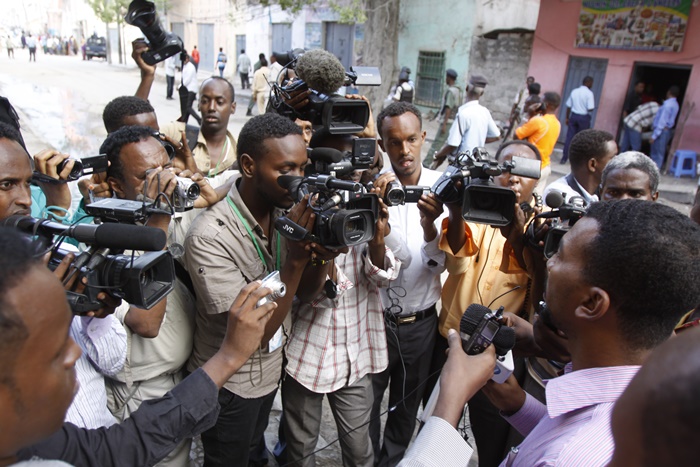Most corrupt countries hostile for media and civil society-TI report


By Fauxile Kibet
Countries with high levels of corruption remain the most hostile and dangerous for journalists and civil society organisations to operate from, a report by the anti-graft watchdog Transparency International notes.
The report released Thursday stated that almost all journalists killed since 2012 died in countries ranked as most corrupt.
“No activist or reporter should have to fear for their lives when speaking out against corruption,” said Patricia Moreira, managing director of Transparency International. “Given current crackdowns on both civil society and the media worldwide, we need to do more to protect those who speak up,” reads the report.
The report, which was compiled with data from the Committee to Protect Journalists reveals that over the last six years, more than 9 out of 10 journalists were killed in countries that score 45 or less on the corruption perception index.
READ ALSO: No reprieve for Farmaajo as Somalia fails to exit ‘most corrupt club’
TI Corruption Index: What you need to know
This means that, on average, every week at least one journalist is killed in a country that is highly corrupt and one in five journalists that have died were covering a story about corruption.
“Transparency International confirms close linkages between corruption and freedom of the press. For example, in Brazil, which scored 37 on this year’s index, 20 journalists died in the last six years. Targeted for their investigations into local-government corruption and drug-related crime, among other issues, reporters in Brazil risk their lives everyday by simply doing their jobs.”
SHRINKING SPACE FOR CIVIL SOCIETY
The report further observes that there exists a link between corruption levels and the freedom with which civic organizations are able to operate and influence public policy.
“Smear campaigns, harassment, lawsuits and bureaucratic red tape are all tools used by certain governments in an effort to quiet those who drive anti-corruption efforts. We’re calling on those governments that hide behind restrictive laws to roll them back immediately and allow for greater civic participation,” said Patricia Moreira Managing Director Transparency International.
SOMALIA MOST CORRUPT
The report, which released an analysis on corruption levels in 180 countries globally ranked Somalia as the most corrupt country globally, followed by South Sudan and Syria.
Countries in Asia-pacific, Europe, America and Central Asia were the least corrupt globally. New Zealand topped the list of the least corrupt followed closely by Denmark, Finland and Norway.
Somalia ranked last with 9 points, South Sudan 179th with 12 points while Syria ranked 178 with 14 points.
“The best performing region is Western Europe with an average score of 66. The worst performing regions are Sub-Saharan Africa (average score 32) and Eastern Europe and Central Asia (average score 34),” reads the report.
In the east African region, Rwanda was ranked least corrupt at position 48 with 55 points while Tanzania came in 103rd with 36 points followed by Kenya and Uganda.
The report which was released as Transparency International marked its 25th anniversary showed that most countries across the world have not made significant progress in fighting corruption.
More alarming is that countries with the lowest protection for press and non-governmental organizations (NGOs) tend to have the highest number of corruption cases.
According to the report, over the last six years, several countries significantly improved their CPI (Corruption Perception Index) score, including Côte d’Ivoire, Senegal and the United Kingdom, while several countries declined, including Syria, Yemen and Australia.
The report urges governments to open up media and civil society space to ensure transparency in public resource management.
“Governments should minimise regulations on media, including traditional and new media, and ensure that journalists can work without fear of repression or violence,” TI says. “In addition, international donors should consider press freedom relevant to development aid or access to international organisations.”
GOOBJOOG NEWS